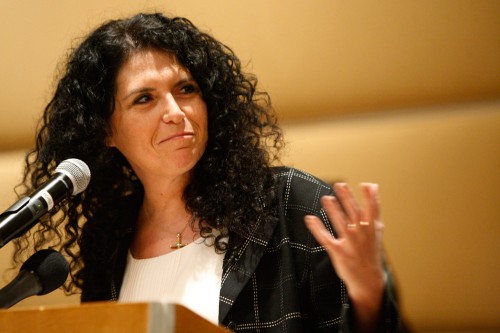Members of the House Committee on Veterans Affairs are urging Veterans Administration Secretary David Shulkin to ensure the VA’s research and development office fulfills “its stated mission,” by allowing research into the effects of marijuana on military veterans suffering from chronic pain and post-traumatic stress disorder.
The letter, issued Thursday, was signed by all 10 Democratic representatives on the committee. It is the latest effort on the part of some lawmakers and veterans’ organizations calling for such studies to proceed.
A spokesman for the American Legion said his organization is “ecstatic” that representatives sent on this letter to Shulkin.
“For several years the American Legion has been pressing the federal government to remove cannabis from Schedule I of Controlled Substances Act so that medical investigators could research the drug and its efficacy in treating PSTD, chronic pain and other illnesses that affect veterans,” Joe Plenzler, director of media relations for the American Legion, told The Cannabist by phone.
Plenzler also noted the letter’s timeliness, given that the national opioid epidemic has had a disproportionate impact on America’s veterans. The letter came out the same day President Donald Trump officially declared opioids a public health emergency.
“Many veterans have told us that they have found relief from medical cannabis and have been able to stop taking VA-prescribed opioids,” he added. “While we can’t change policy based on their compelling stories, we need to do the research so that we can have a national, fact-based adult conversation on the future of cannabis policy in America.”
Last month the Legion, the nation’s largest veterans organization, called for “direct involvement” from top VA officials to remove obstacles that have been threatening the completion of a pioneering clinical study involving medical marijuana as a potential treatment for PTSD in veterans.
The federally-approved clinical trials are based in Arizona, and funded with grants from Colorado’s health department. But the study’s administrator, Dr. Sue Sisley, says the Phoenix VA Health Care System has been obstructing patient recruitment efforts, an action that has put the future of the study in jeopardy.

“I’m immensely disappointed that our VA secretary could not take the initiative to support this research on his own,” Sisley said in a statement to The Cannabist, adding that “he’s had a golden opportunity to support an FDA-approved clinical trial looking at safety/efficacy of cannabis for past year” but has yet to take action and request Phoenix VA officials’ cooperation in the study.
This past summer, meanwhile, a House Rules Committee blocked a bipartisan medical marijuana amendment, which would have banned federal funds from interfering with a veteran’s ability to take part in a state-sanctioned medical cannabis program.
It also would have allowed VA doctors in those states to make recommendations about medical marijuana to patients, access forms and take other steps to help veterans comply with those medical marijuana programs.
Read the House veterans committee letter to Secretary David Shulkin about marijuana research:
